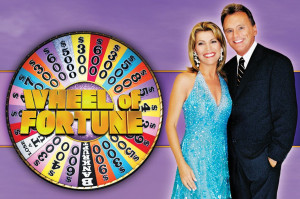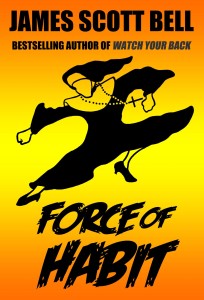 It happens every year or so. A bigwig from the traditional publishing world takes a look at the data—usually some sort of downturn in the industry—and writes a piece predicting the future of publishing.
It happens every year or so. A bigwig from the traditional publishing world takes a look at the data—usually some sort of downturn in the industry—and writes a piece predicting the future of publishing.
Recently Michael Pietsch, CEO of Hachette, took a turn (Wall Street Journal, Dec. 1, 2015. Link may expire). It’s always good to hear from inside the walls of the Forbidden City. Mr. Pietsch begins thus:
I’ve been hearing about the demise of book publishing since the first day I stepped through the doors of a publisher back in 1978. But here we are still, publishers like Little, Brown, with histories going back 100 and 200 years. What other American industry has companies still in existence after two centuries, evolving and modernizing but still doing much the same work? The most recent variant of the death watch: A digital revolution would cause e-books to replace printed ones, authors would overwhelmingly choose self-publishing, and publishers would follow carriage makers into oblivion.
Mr. Pietsch then notes that e-book revenue for major publishers has “topped out” (this datum has been misreported in the media as reflecting a downturn in the overall e-book market. Such is not the case).
What of the boom in self-publishing? Mr. Pietsch gives it a nod, but also notes:
But writers like to be paid, in advance, for their work. Publishers are investors and risk takers. And a publishing company with longstanding media and marketing relationships is far more capable of getting attention for a new book than a writer working alone.
This deserves a closer look. Writers like to be paid period. And they like payments to be a fair exchange. Currently, big publishing is holding firm with its contracts, the boilerplate of which hearkens back to when the industry was an oligopoly, “a state of limited competition, in which a market is shared by a small number of producers or sellers.”
Indeed, the Authors Guild has begun an initiative that seeks more equitable contract terms. But this effort is running into the merciless force field of big business, which is electrified by the need for profit. And an enterprise does not generally increase its profits by raising its own costs.
So a writer looking at a modest advance (the norm these days) must make a decision. Yes, a big publisher can get a book “attention.” But not for every book. Not even for most books. And a book that does not get the big push and doesn’t sell well means the author will probably be let go—without, by the way, retaining the rights to his work.
Still, there are writers who want to spin that Wheel of Fortune. If they win, they win big. If  they lose, there is at least an alternative for them that never existed before. As indies they’ll be starting from square one (or maybe square two or three, with a bit of a readership), but at least they won’t be outside the walls of the Forbidden City, in the cold, blowing on their hands, begging to be let back in.
they lose, there is at least an alternative for them that never existed before. As indies they’ll be starting from square one (or maybe square two or three, with a bit of a readership), but at least they won’t be outside the walls of the Forbidden City, in the cold, blowing on their hands, begging to be let back in.
Mr. Pietsch insists that a publisher’s “essential work” is “identifying, investing in, nurturing, and marketing great writers.” I would ask: how much of an investment? How lasting the nurturing?
Sometimes a deal pays off and a book is a smash and the author moves to the A-list. But this doesn’t happen often. And it doesn’t happen at all for midlist authors who are dropped by their former nurturers for lack of numbers.
Yet many of these midlisters are now making good money by going indie. Some have secured rights to their backlist (though publishers are digging in their heels these days)—or they are being productive with new work on a consistent basis.
On the future of the business, Mr. Pietsch says:
Ever-larger retailers and wholesalers bring significant margin pressure, which will lead to continued conglomeration. Social media will continue to expand the writer’s ability to connect with readers; publishers will deepen their relationships with writers, but they’ll also create content of their own. As runaway books sell ever-larger numbers, publishers will earn more on their biggest sellers—which will keep driving up the advances they pay for potential hits. At the same time, publishers will need to innovate and challenge assumptions about every aspect of the business.
I would like to hear some details on how publishers can “deepen their relationships with writers.” I have a large number of professional writing friends, and for all of them the relationship with a publisher has been based, over and above all else, on the counting of beans. When the beans are flowing, the author and publisher are a regular Mike and Carol Brady. But when the beans dry up, it’s Al and Peg Bundy … usually ending in divorce.
This, by the way, is not a knock on publishers. It’s simply the way things are, and always have been, for big business. You can’t keep sinking dollars into a widget that isn’t selling. And in this day of market disruption and volatility, there is no longer the patience to hang on to a once-promising author to see if he can make a comeback.
Which is why Mr. Pietsch is correct that the only way forward for the industry is to hope for more “runaway books.” I just wonder about the assumption that they will sell in “ever-larger numbers.” And how many times a big bet can be placed on a “potential” hit.
In any event, I do think a robust, traditional publishing industry is a good thing to have around. When it scores, it brings books and authors the attention they deserve.
But the landscape is now in a permanent state of disequilibrium. Meaning, yes, that big publishers must “innovate and challenge assumptions about every aspect of the business.”
Kind of like the ever-increasing corps of authorpreneurs who have been writing and innovating for years.
So what is your take on the future of the publishing business? Can the Bigs survive in their present condition? Will self-publishing continue to provide serious revenue to enterprising and productive authors?
***
Speaking of the present, the first Sister J vigilante nun novelette, FORCE OF HABIT, is FREE through Thursday on Amazon. Get in on the kicks!

